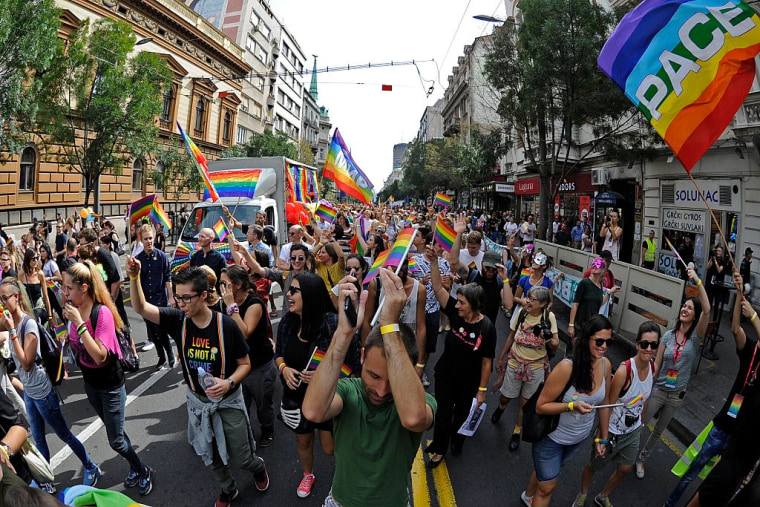Belgrade Pride held a public march in the city center this past weekend, closing out a week of LGBTQ Pride events in the Serbian capital. But the presence of extremely high levels of security, including a lockdown of the city center to ensure the safety of the marchers, highlighted the challenges still facing Serbia’s LGBTQ community as they continue to fight for more visibility and rights in the Balkan country.
Dragoslava Barzut attended the march as she has years before, and is the head of Da Se Zna, an online community that works to document the incidents of discrimination and crimes against LGBTQ people in Serbia.
“We are often being asked why do we need a Pride parade? Why do we need to parade …that [which] we should keep in our four walls? But this is not intimate stuff,” Barzut said. “Sexual orientation is very public. Pride is needed as an answer to the mistreatment we face every day from the patriarchal community.”
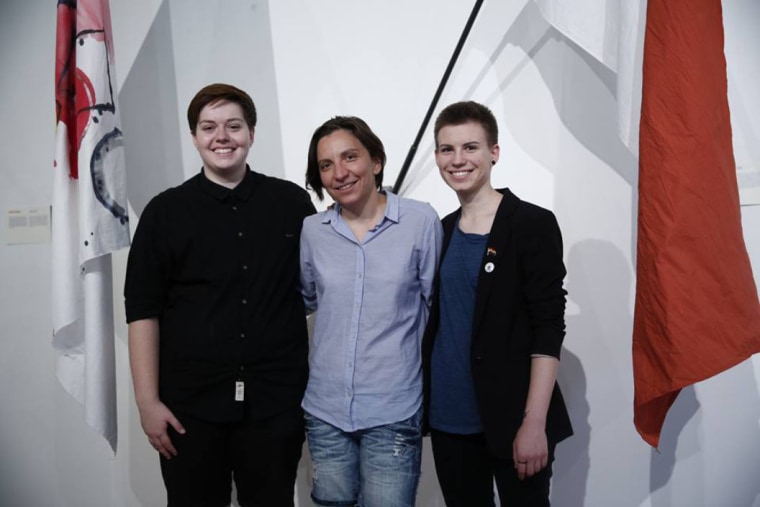
Past Pride events in Serbia have been banned by the government due to concerns and threats of violence from anti-gay protestors. In 2010, the Pride march was marred by violence when rioters set fire to buildings and hurled petrol bombs and bricks at riot police, while chanting “Death to homosexuals.” More than 100 people were injured in the chaos, and subsequent Pride events in Serbia were banned, before continuing again in 2014.
This past weekend’s event of a few hundred marchers occurred for the third consecutive year without incident, due in part to the presence of thousands of police officers, as well as armored vehicles and helicopters circling overhead to deter any possible threats of violence.
“Two types of Prides can be recognized in the world … One celebrating inclusiveness and achievements of human rights, recognition and respect. The other one, like in Serbia, is a protest, demanding these rights and raising visibility.”
“It is important to explain that Pride in Serbia is a political event, not a celebration,” said Malden Antonijevic Priljeva, who works in human rights as Program Director at the Center for Research and Social Development in Belgrade. “Freedom of assembly is a fundamental human right enshrined in the Constitution of Serbia, and as such must be accessible to all on equal bases.”
He sees the continuation of Pride events in Serbia as a positive step, but noted that these events don’t necessarily translate into an improved quality of life for LGBTQ citizens living in the country. “To be more precise, the key problems of the LGBTQ community in Serbia remain the same as during the years when Pride was banned,” Priljeva said. “So one must ask the question, what benefit does the LGBTQ community have from Pride?”
Anđela Čeh, 25, was born and raised in Belgrade and works for the civil society organization IDEAS. She is also actively involved with the organization Egal, which provides aid and support to LGBTQ persons in Serbia.
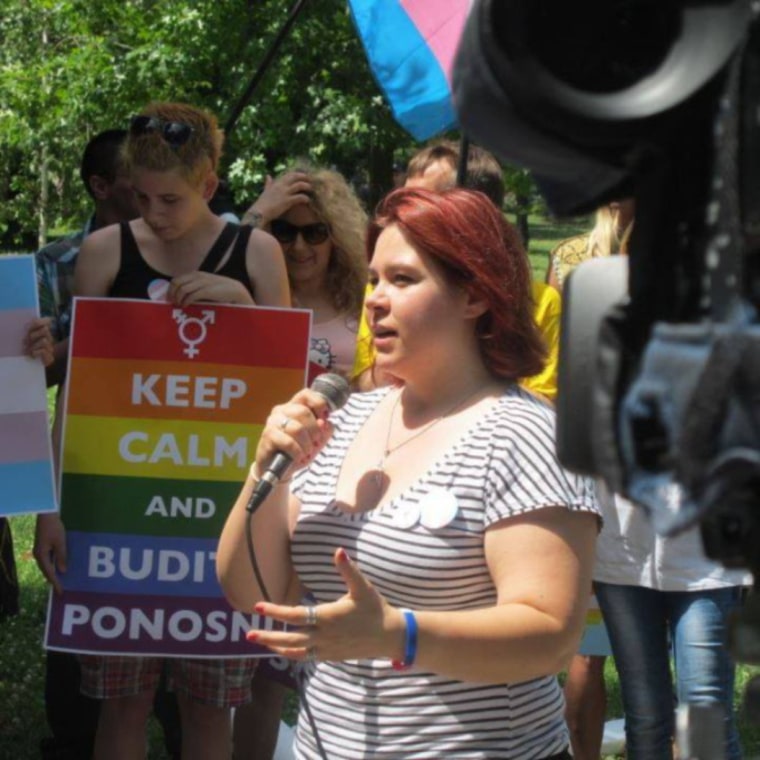
“Two types of Prides can be recognized in the world,” Čeh said. “One celebrating inclusiveness and achievements of human rights, recognition and respect. The other one, like in Serbia, is a protest, demanding these rights and raising visibility.”
According to a poll conducted in 2015 by the National Democratic Institute on LGBTQ issues affecting the Balkans, 72 percent of LGBTQ respondents in Serbia indicated they had endured harassment, 51 percent said they had faced discrimination in the areas of employment and other areas and 23 percent said they had been physically assaulted because of their sexual orientation or gender identity.
Čeh said while threats of violence and harassment against the LGBTQ community are a real concern, she chooses to live her life more open and free.
In fact, Čeh, along with her colleagues at Egal and the organization Loud and Queer, organized an alternative Pride event this past June called Pride Serbia. Unlike the Belgrade Pride event held this weekend, which was cordoned off by police officers with entry limited to specific entry points[7], the march in June was without barricades and participants marched more openly through the streets of Belgrade.
“We marched to show we are proud of being Serbian citizens. And, yes, it was a success,” Čeh said. “People in the streets could actually see our pride and joy, not only on television, but live. They were even joining the march.”
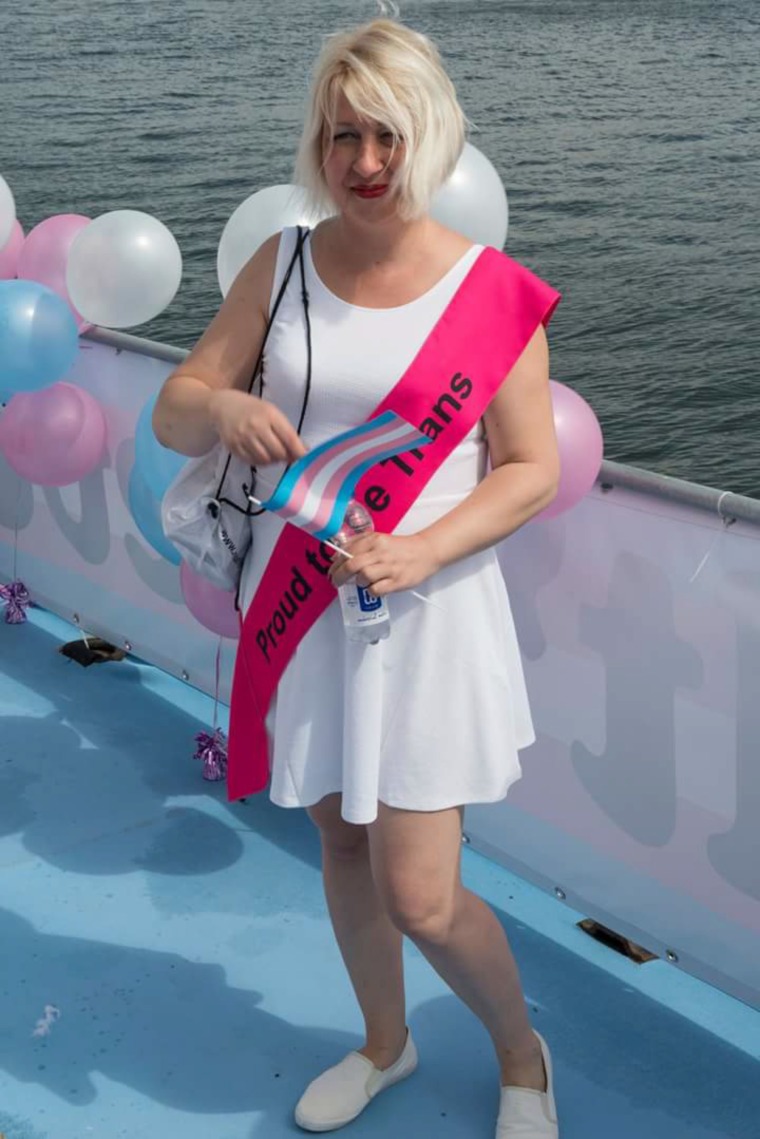
Helena Vukovic, who works as a Coordinator at Egal, also participated in the Pride event in June. “There was around 200 people, which is a great number for a conservative [country like] Serbia,” Vukovic said. “The most important thing is it was in June … because all Prides are celebrations of the Stonewall riots.”
Vukovic herself first became involved in activism after being forcibly retired from the Serbian army in January 2015, due to her coming out as openly transgender. “[I was told] I would damage the honor of the army,” she said of her discharge as an officer after two decades of military service. “My mission [now] is that no trans persons in Serbia will go through what I did.”
RELATED: Serbian's First Trans Army Veteran Celebrates Gender Confirmation
Predrag Azdejković, who works at the Gay and Lesbian Info Center in Belgrade, says despite the many challenges in his country, he still sees progress being made for the LGBTQ community. “I see that a lot of young people don’t have the problems that my generation had,” he said. “They are out in high school, and have a lot of friends that know they are out.”
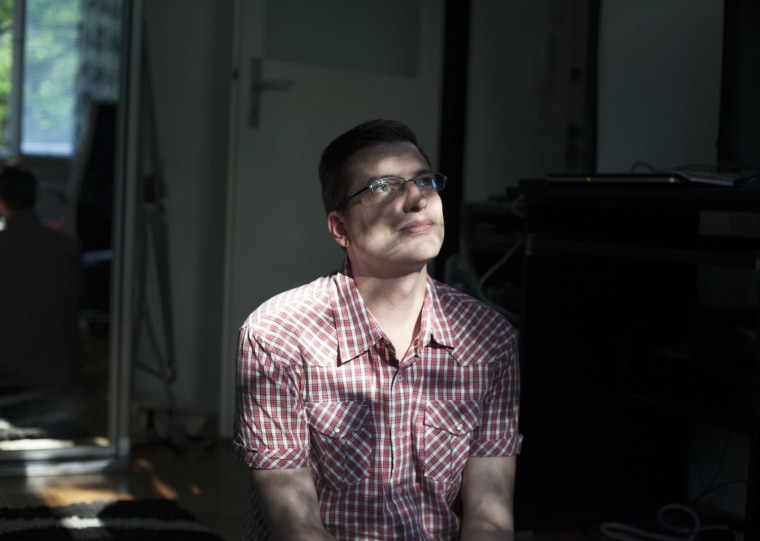
He also noted that Serbia’s recently appointed Minister for Public Administration and Local Government, Ana Brnabić, is the first openly gay Minister in the country. “It will be interesting because she can do something, but we will see how much. And that is also the responsibility of the LGBTQ activist,” Azdejković said.
RELATED: Serbia's New Government to Include Openly Gay Minister
Brnabić did make an appearance at Belgrade Pride’s march on Sunday, and many in the community are voicing their support of the openly gay minister.
“This is … a very powerful symbol gay individuals will have. For the first time in our history [there is] an openly gay high level political stakeholder,” said Malden Antonijevic Priljeva.
Anđela Čeh agrees. “The election of Ana Brnabić is a very important step for the LGBTQ community and a very strong political statement. [With regards] to the implementation of existing legal frameworks, it remains to be seen what kind of progress will be made. But she has my support and wishes of good luck in her work.”
